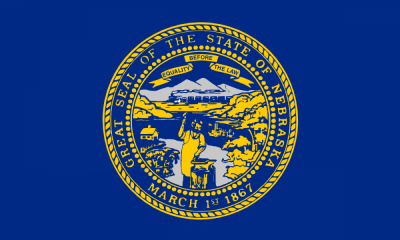Nebraska

Nebraska recognizes a statutory right of privacy, including a cause of action for the exploitation of a person for advertising or commercial purposes. The state also provides post-mortem rights by statute.
Statute
YES
Nebraska recognizes a statutory cause of action for invasion of privacy for the exploitation of a person’s “name, picture, portrait, or personality for advertising or commercial purposes.”
The cause of action is not assignable. Neb. Rev. Stat. § 20-207
Prior to enactment of the statute, Nebraska did not recognize either the common law right of publicity or the tort of misappropriation. The statute was enacted in 1979. Both economic and dignitary damages are recoverable.
In 2019, Nebraska adopted the Uniform Civil Remedies for Unauthorized Disclosure of Intimate Images Act which allows “a depicted individual” to bring a claim for an “intentional disclosure or threatened disclosure of an intimate image” if the defendant “knew or acted with reckless disregard for whether:” (1) the person consented to disclosure; (2) the image was private; and (3) the plaintiff was identifiable. Damages of up to $10,000 can be presumed, and attorney’s fees may be recovered by a prevailing plaintiff.
Neb. Rev. Stat. §§ 20-201 et seq.
Sabrina W. v. Willman, 540 N.W.2d 364 (Neb. Ct. App. 1995)
Common Law - Right of Publicity
NO
Prior to the enactment of the statute, Nebraska did not recognize a common law right of publicity.
Carson v. Nat’l Bank of Commerce Trust & Sav., 501 F.2d 1082 (8th Cir. 1974)
Common Law - Right of Privacy-Appropriation Tort
NO
Prior to the enactment of the statute, Nebraska did not recognize a common law right of privacy.
Schoneweis v. Dando, 435 N.W.2d 666 (Neb. 1989)
Brunson v. Ranks Army Store, 73 N.W.2d 803 (Neb. 1955)
Post-Mortem Right
YES
The Nebraska statute establishes a post-mortem right of publicity. The statute does not address duration, implying that the right may continue indefinitely.
Although the statute does not provide rules for transfer or ownership of the right of publicity, it allows a surviving spouse or a personal representative of the deceased to consent to publicity. It is not clear whether this provision usurps the possibility of a transfer via testamentary means.
Limits on Right
Does the law require the plaintiff or identity-holder to be a celebrity or have a commercially valuable identity?
NO
The Nebraska statute does not so limit the claim and no court has suggested otherwise.
Does the law protect persona?
UNCLEAR
The Nebraska statute protects personalities. However, no court has addressed the scope of protection extended to personalities.
Is Liability Limited to Uses on Commercial Advertising or Commercial Speech?
UNCLEAR
The Nebraska statute prohibits the use of a person’s identity, but only for “advertising or commercial purposes.” It is not clear how broadly or narrowly these terms are meant. Likely they sweep more broadly than commercial speech. The Nebraska Supreme Court has suggested that the typical use will be one for “commercial gain,” but it has not defined that term either. The Court did, however, reject a claim under § 20-202 based on the filing of an insurance claim because it deemed that use as not being for commercial gain.
Some Nebraska courts have looked to the Restatement (Second) of Torts to interpret the privacy statute which suggests that the statute will allow liability for uses beyond those in commercial speech. See Sabrina W. v. Willman, 540 N.W.2d 364 (Neb. Ct. App. 1995).
Wilkinson v. Methodist, Richard Young Hosp., 612 N.W.2d 213 (Neb. 2000)
Statutory Defenses
Nebraska’s statutory right of privacy provides a number of exceptions, including:
- Uses in news, and noncommercial advertisements with current or historical public interest
- Resale or distribution when the underlying use is authorized
- Uses when a person appears in a photograph as a member of the public
- Uses when consent is expressly given, or implied
- Other constitutional and statutory defenses, including defenses that apply to defamation claims
- Defenses to privacy claims derived from other states
Miller v. American Sports Co., Inc., 467 N.W.2d 653 (Neb. 1991)
First Amendment Analysis
In the context of other privacy claims, the Nebraska Supreme Court has recognized that the claims are limited by the First Amendment.
Schoneweis v. Dando, 435 N.W.2d 666 (Neb. 1989)
Nebraska is within the jurisdiction of the Eighth Circuit Court of Appeals which has adopted a balancing test to weigh free speech concerns against the interests of publicity holders. In C.B.C. Distribution & Marketing, Inc. v. Major League Baseball Advanced Media, L.P., 503 F.3d 818 (8th Cir. 2007), the circuit held that fantasy sports leagues’ use of baseball players’ names and statistics is protected by the First Amendment.
C.B.C. Distrib. & Mktg v. MLB Advanced Media, L.P., 503 F.3d 818 (8th Cir. 2007)
